The Contester: The Collapse of Neil Azevedo's Zoo
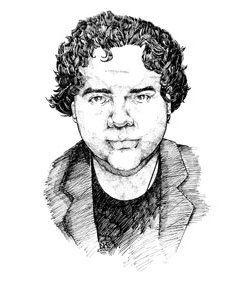
Two years after the failure of Zoo Press's fiction contests in 2004, founder Neil Azevedo responds about more controversy surrounding its poetry contests.
Jump to navigation Skip to content
Articles from Poet & Writers Magazine include material from the print edition plus exclusive online-only material.

Two years after the failure of Zoo Press's fiction contests in 2004, founder Neil Azevedo responds about more controversy surrounding its poetry contests.
It took a long time to write these words. I'm not referring to the psychosomatic affliction known as writer's block. I mean the delays caused by the process of composition and revision.
Sadly, recent revelations are forcing readers—confronted by a brand-new band of literary scallywags, hucksters, and hoaxers—to reconsider the veracity of the story as well as that of the storyteller.
For this inaugural installment of More to the Story—an occasional feature in which we ask authors to list the movies, music, artwork, and books that inspired them during the course of writing their new books—we asked A.M. Homes about her fifth novel,This Book Will Save Your Life, which was published by Viking last month.
On April 14 hundreds of scholars gathered in the Millennium Hall of the Loews Hotel in Philadelphia for the second day of the thirty-fourth annual meeting of the Shakespeare Association of America, a nonprofit, academic organization devoted to the study of William Shakespeare and his plays and poems.
Bill Manhire is one of New Zealand’s most visible writers and certainly its most visible poet. The country’s inaugural poet laureate, Manhire is the author of more than ten books of poems, including Lifted, recently published by his long-time New Zealand publisher, Victoria University Press.
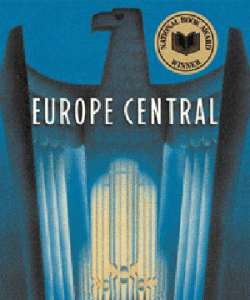
The author of fifteen books, including eight novels, three short story collections, a memoir, and a ten-volume treatise on the nature and ethics of violence, William T. Vollmann is often associated with his most controversial subjects—crack and prostitution among them. He is also characterized by a few signature stunts, such as firing a pistol during his readings and kidnapping a girl who had been sold into prostitution and turning her over to a relief agency while writing an article for Spin magazine.
On a frigid night in early March, a well-dressed crowd of around five hundred people piled into the New School’s Tishman Auditorium to witness the announcement of the winners of the National Book Critics Circle Awards. The membership organization of seven hundred critics and reviewers, founded in 1974, bestows awards annually for poetry, fiction, biography, general nonfiction, and criticism. This year, for the first time, autobiography (or memoir), was added as a separate category—an interesting distinction at a time when the controversy over the genre has dominated literary news.
Literary MagNet chronicles the start-ups and closures, successes and failures, anniversaries and accolades, changes of editorship and special issues—in short, the news and trends—of literary magazines in America. This issue's MagNet features Fairy Tale Review, Alimentum, Lost, Dislocate, Tameme, Double Change, Storie, and Terra Incognita.
In response to its 2004 report "Reading at Risk," which found that significantly fewer people read serious literature now than in years past, the National Endowment for the Arts recently launched an ambitious program designed to reverse the trend.
In celebration of National Poetry Month, we present this all-poetry edition of Page One, featuring excerpts from Black Lab by David Young and Drive: The First Quartet by Lorna Dee Cervante.

In an effort to promote scientific literacy, foster an appreciation of the humanities, and encourage readers to make "informed and imaginative connections" between the sciences and the arts, New York City–based Vernacular Press recently launched a series of books titled "Categories."

It used to be that when a writer bestowed human qualities on an animal—the ability to speak, for instance—it almost always meant trouble. Today, animal lit is broader in scope and occasionally even benevolent in nature.
Small Press Points highlights the happenings of the small press players. This issue features Hourglass Books, Hanging Loose Press, and Chiasmus Press.

The Edward F. Albee Foundation in Montauk, New York, gives writers room to write—in one of the most inspiring barns in the country.
From Thoreau to Arthur Miller for centuries writers have been escaping to personal cabins—some even hand built by the writers themselves—for the solitude necessary to slip inward.
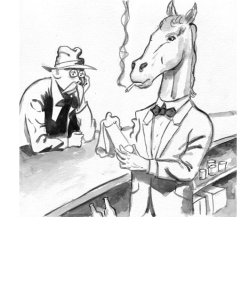
Among the many poetry collections that have been published in the weeks leading up to National Poetry Month, Jim and Dave Defeat the Masked Man, a collaborative book of sestinas by James Cummins and David Lehman released by Soft Skull Press in February, features perhaps the most prestigious and, simultaneously, zany cast of characters to appear in a book of poems since Alan Kaufman's Outlaw Bible of American Poetry was published by Thunder's Mouth Press seven years ago.

On the eve of her departure from Somerville, Massachusetts, for Iowa City, Lan Samantha Chang spoke about her new role as the leader of the country's oldest creative writing program.

The second annual Story Prize ceremony, held at the New School’s Tishman Auditorium in late January, began like most literary events in New York City—with much chattering among publishing folk, rising in volume until the lights went down and a hush descended on the room. The evening’s format was simple. The three finalists, fiction writers Jim Harrison, Maureen F. McHugh, and Patrick O’Keefe, would each read from their books and then sit for a short discussion with Larry Dark. In 2004 Dark, the former O. Henry Prize Stories series editor, launched the prize with Julie Lindsey in an effort to promote a genre they believed was underrepresented by other literary awards. The winner of the first annual prize was Edwidge Danticat for The Dew Breaker (Knopf, 2004).
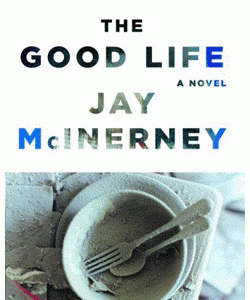
Perhaps no single book details the excesses of the 1980s—in particular the debauchery of the New York City social scene—better than Jay McInerney’s Bright Lights, Big City (Vintage Books, 1984). The author’s commercially successful debut novel was adapted into a movie, starring Michael J. Fox and Keifer Sutherland, in 1988.
Literary MagNet chronicles the start-ups and closures, successes and failures, anniversaries and accolades, changes of editorship and special issues—in short, the news and trends—of literary magazines in America. This issue's MagNet features the Paris Review, A Public Space, lyric, Saranac Review, Spoon River Poetry Review, Red River Review, the Canary, and River Styx.
At the end of his fourth week on the job as the book editor of the Los Angeles Times, Ulin spoke about his intentions for the Book Review and his responsibilities as its new editor.

In five books written within the past eleven years, incuding The Last of Her Kind, Sigrid Nunez has obscured and sometimes just ignored traditional distinctions of genre by blending elements of fiction and autobiography.
Joining the ranks of literary contests that have failed to yield a winner, Winnow Press is the latest sponsor to announce that the manuscripts received for their First Book Award were not up to par; they are, however, offering something of a consolation prize.
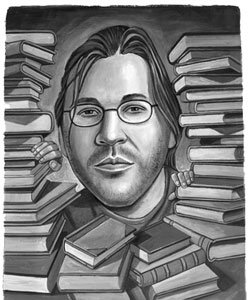
Whether it’s a thousand-page novel, a single-paragraph story, or a footnoted essay, the elusive author always offers a complicated—and sometimes maddening—reading experience. But is there more to David Foster Wallace than words on a page?